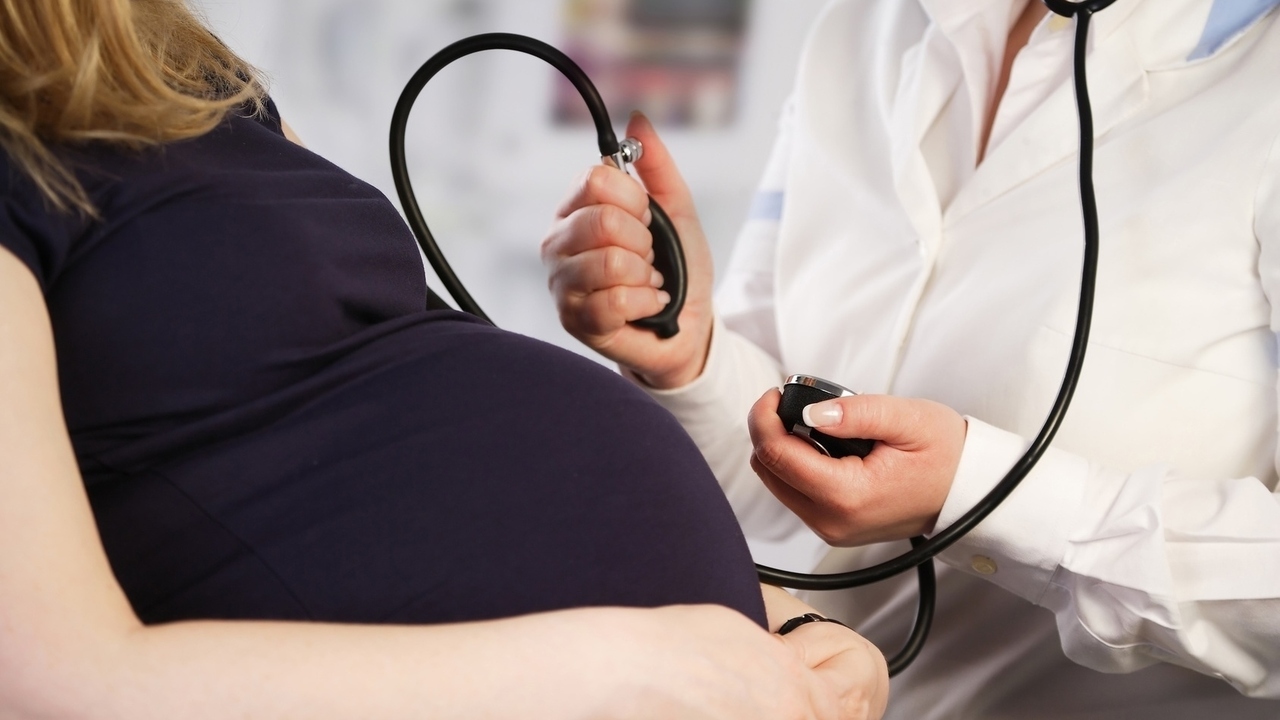 emiliau/Fotolia
emiliau/Fotolia
Gestational diabetes is a form of diabetes that develops during a woman’s pregnancy. The woman did not have diabetes prior to the pregnancy, though she may have had risk factors for it. Having elevated blood sugars levels may endanger the health of the unborn baby.
Gestational diabetes is usually discovered mid-pregnancy around the 24th to 28th weeks, which is the routine time doctors check to see how a woman’s blood sugars are doing. Because there are often no symptoms of gestational diabetes, it is important that pregnant women are checked.
“According to the American Diabetes Association, gestational diabetes typically affects 18 percent of all pregnant women,” reported Healthline.com.
Why It Happens
Doctors are not entirely sure why some women develop gestational diabetes, though it is believed that hormones are involved.
During pregnancy, the placenta produces a hormone called human placental lactogen (hPL), which helps the baby grow by changing the way the mother’s body metabolizes carbohydrates and lipids. Additional estrogen and cortisol are also produced to help maintain the pregnancy.
It is thought that the release of hPL affects the way the mother’s body responds to insulin so that glucose levels become increased in her body to better provide nutrition to the growing infant.
Endocrineweb.com states that at 15 weeks, the mother’s body also produces another hormone called human placental growth hormone (hGH). The release of this hormone further raises the levels of blood sugar in the mother’s body to assure that they are high enough to feed the infant.
Unfortunately, gestational diabetes can occur if the woman’s blood sugars become too high.
Risk Factors
Though it is unclear as to why some women get gestational diabetes and others do not, there are risk factors that make a woman more susceptible.
- Family history: Having other family with diabetes or a history of gestational diabetes, or if a woman has had other pregnancies with gestational diabetes
- Age: Being over 25 years old
- Weight and hypertension: Being overweight or having high blood pressure
- Race: “African-Americans, Native Americans, Asian Americans, Hispanic people, and Pacific Islanders are more likely to have gestational diabetes,” reported Endocrineweb.com
- Prediabetes: If a woman has had elevated of blood sugars found before pregnancy, even if they were not high enough to be diagnosed as diabetes
Risks to the Infant, During and After Delivery
Gestational diabetes can increase the risk of the newborn having breathing difficulties, low blood sugar and being a larger size at the time of birth. This can complicate the delivery and after-care of both the woman and infant. Due to their large size, some of these infants will need to be delivered by C-section.
In addition, children born from mothers who had gestational diabetes may be at higher risk of language and motor developmental difficulties and be at higher risk themselves of developing type 2 diabetes as they grow up.
Treatment
Based on the results of testing blood sugar levels, the doctor will decide whether the pregnant woman's condition can be controlled with diet and monitoring or whether she needs to take oral hypoglycemic medication or injectable insulin.
The woman may meet with a dietician to discuss specific food and meal planning so she can eat an optimum diet to nourish herself and her unborn infant.
Exercise will be encouraged as the activity can help the body use blood sugar more effectively. Endocrineweb.com says that “when you exercise, your body doesn’t need as much insulin to transport the glucose; your body becomes less insulin resistant.”
If exercise and diet do not control a woman’s gestational diabetes well enough, then oral hypoglycemic medication or injectable insulin may be required. These medications will not harm the growing baby.
Instructions will be given on how to monitor blood sugar levels and what to do if the blood sugar drops to low levels.
After delivery
It is likely that after delivery, the gestational diabetes will resolve. The doctor will follow up with blood sugar checks about six weeks later.
However, a woman is at higher risk of having a recurrence of gestational diabetes with another pregnancy, up to a 50 percent increased risk, according to the CDC. She is also at a higher risk of developing type 2 diabetes and obesity later on.
Sources:
Gestational Diabetes. Healthline.com. Retrieved November 7, 2015.
http://www.healthline.com/health/gestational-diabetes#Overview1
Gestational Diabetes. Diabetes During Pregnancy. Retrieved November 7, 2015.
http://www.endocrineweb.com/conditions/gestational-diabetes/gestational-...
Gestational Diabetes and Pregnancy. Centers for Disease Control and Prevention. Retrieved November 7, 2015.
http://www.healthline.com/health/gestational-diabetes#RiskFactors3
Michele is an R.N. freelance writer with a special interest in woman’s healthcare and quality of care issues.
- Edited by Jody Smith
Read more in Diabetes Health Center



Add a CommentComments
There are no comments yet. Be the first one and get the conversation started!